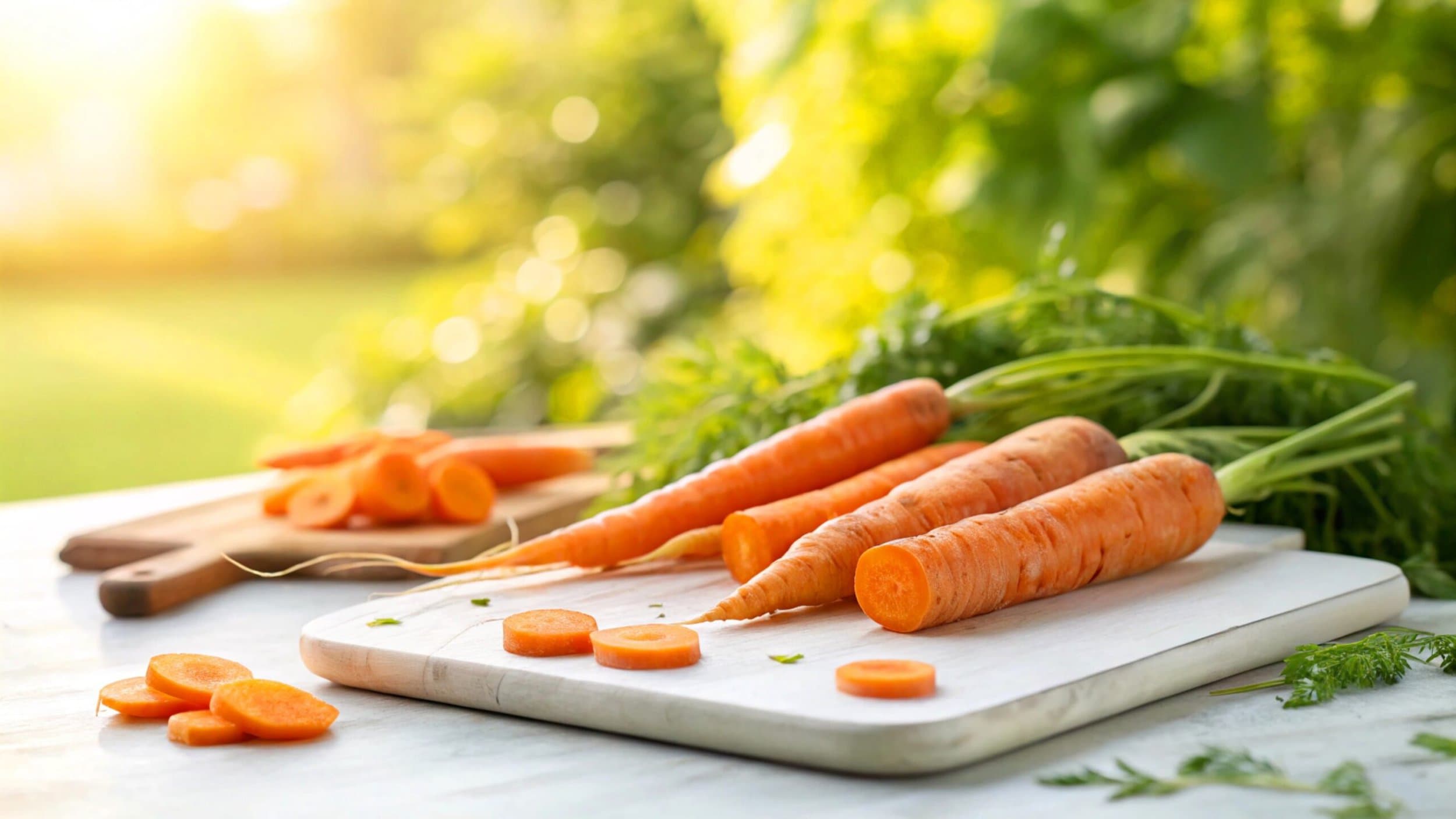Spinach is packed with nutrients and can be used in so many ways. Whether you’re tossing it into a smoothie, piling it onto a salad, or wilting it into a warm dish, this versatile vegetable has earned its reputation as a health food staple. But can it actually help you lose weight?
Yes. Spinach is one of those rare foods that checks nearly every box for weight loss success: it’s extremely low in calories, packed with fiber and water to keep you feeling full, and loaded with essential nutrients that support your metabolism. Beyond the scale, spinach offers impressive benefits for your heart, brain, eyes, and overall health. Let’s dive into the science-backed reasons why this humble green deserves a prominent spot on your plate.
✅ Quick answer
Yes, spinach is an excellent food for weight loss. It’s incredibly low in calories and carbohydrates while being rich in fiber and essential nutrients, which helps you feel full and nourished without consuming many calories.
🚀 Weight-loss benefits
- It’s extremely low in calories – With only 23 calories per 100 grams (about 3½ cups raw or ½ cup cooked), spinach allows you to eat a large, satisfying volume of food without a significant caloric impact. This concept, known as low energy density, is a cornerstone of successful and sustainable weight management. You can fill your plate, feel full, and still maintain a calorie deficit.
- It’s high in fiber and water – Spinach is a good source of insoluble fiber, which adds bulk to your meals and aids digestion. This, combined with its high water content, promotes a feeling of fullness (satiety), helping to reduce overall calorie intake.
- It contains satiety-boosting compounds – Spinach contains thylakoids, specialized compounds that have been scientifically shown to slow fat digestion and increase the release of fullness hormones like GLP-1. This biological mechanism helps you feel satisfied longer and naturally leads to reduced calorie intake throughout the day.
⚠️ Things to be mindful of
- It’s high in vitamin K. Spinach packs a lot of vitamin K, which helps your blood clot normally. For most people, that’s a good thing. If you take a blood thinner like warfarin, though, it’s important to keep your vitamin K intake steady from day to day. A big jump in spinach intake can affect how the medication works, so consistency is key.
- It contains goitrogens. Raw spinach has naturally occurring compounds called goitrogens, which can interfere with iodine absorption if eaten in very large amounts. For most people with normal thyroid function, this isn’t something to stress about. If you’re concerned, lightly cooking spinach helps reduce these compounds.
- It’s high in oxalates. Spinach is also high in oxalates, which can contribute to kidney stone formation in people who are already prone to them. If you’ve had kidney stones before, it may help to enjoy spinach in moderation and pair it with calcium-rich foods. Cooking spinach can also lower its oxalate content.
Rx weight loss, the right way, with Noom
Get access to prescription weight loss medication with Noom.🥗 Nutrients in spinach (per 100 g / ~3½ cups raw or ½ cup cooked)
| Nutrient | Amount | % RDA* |
|---|---|---|
| Calories | 23 calories | 1% |
| Protein | 2.9 g | 6% |
| Total carbs | 3.6 g | 1% |
| Fiber | 2.2 g | 8% |
| Sugars | 0.4 g | — |
| Total fat | 0.4 g | <1% |
| – Saturated fat | 0.1 g | <1% |
| – Monounsaturated fat | <0.1 g | — |
| – Polyunsaturated fat | 0.2 g | — |
| Omega-3 | 138 mg | — |
| Omega-6 | 26 mg | — |
Spinach has only 23 calories per ½ cup cooked or 3 ½ cups raw, so you get a lot of volume for very few calories. It’s one of those foods that lets you fill your plate with a satisfying amount.
Most of the carbohydrates in spinach come from fiber. Fiber helps you stay full longer, supports smooth digestion, and can help keep your blood sugar more stable throughout the day. And because spinach contains less than half a gram of sugar, it won’t lead to the energy spikes and crashes you might get from more processed foods.
The protein and fat content are modest, but the fats you do get are largely polyunsaturated, including a small amount of plant-based omega-3s.
*Recommended dietary allowance (RDA) is defined as the average daily amount of nutrients needed to meet the requirements of nearly all healthy people in a specific group.
💊 Vitamins & minerals in spinach (per 100 g / ~3½ cups raw or ½ cup cooked)
| Vitamin/Mineral | Amount | % RDA* |
|---|---|---|
| Vitamin K | 482.9 µg | 402% |
| Vitamin A | 469 µg | 52% |
| Folate (B9) | 194 µg | 49% |
| Manganese | 0.9 mg | 39% |
| Vitamin C | 28.1 mg | 31% |
| Magnesium | 79 mg | 19% |
| Iron | 2.7 mg | 15% |
| Riboflavin (B2) | 0.2 mg | 15% |
| Vitamin E | 2.0 mg | 14% |
| Copper | 0.1 mg | 14% |
| Potassium | 558 mg | 12% |
| Vitamin B6 | 0.2 mg | 11% |
| Calcium | 99 mg | 8% |
| Thiamin (B1) | 0.1 mg | 7% |
| Zinc | 0.5 mg | 5% |
Spinach isn’t just low in calories; it’s packed with vitamins and minerals. The standout here is vitamin K, which shows up in a big way: one serving delivers more than four times your daily needs. Vitamin K plays an important role in bone strength and healthy blood clotting.
You’ll also get a generous amount of vitamin A, which supports vision, immune health, and skin. Folate (B9) is another highlight. It’s essential for cell growth and energy metabolism, and spinach provides almost half of your daily needs in one go.
On top of that, spinach brings antioxidants like vitamin C and vitamin E, which help protect your cells from everyday stress and inflammation.
And the mineral lineup is just as impressive. Spinach is rich in manganese (key for metabolism and bone formation) and magnesium, which supports energy production, muscle function, and nervous system balance. You’ll also get plant-based iron, plus potassium for heart health and calcium for bone support.
🔍 Nutrient breakdown
Glycemic index (GI) of spinach
Glycemic index: 15 (Low)
💡 Tip: Low-GI foods like spinach are digested slowly, preventing sharp spikes in blood sugar and helping to manage hunger and cravings effectively.
Is spinach high in protein?
❌ No – Spinach contains a modest 2.9 g of protein per 100 g. While it contributes to your daily intake, it’s not considered a primary protein source. To build a balanced, high-protein meal, you should combine spinach with more substantial protein sources.
Better protein alternatives: Grilled Chicken Breast | Lentils | Greek Yogurt
Is spinach high in fiber?
✔️ Yes – Spinach provides 2.2 g of fiber per 100 g, which is a significant amount for such a low-calorie leafy vegetable. This insoluble fiber adds bulk to your stool, promotes regular bowel movements, and contributes to a lasting feeling of fullness.
💡 Tip: Add a handful of spinach to smoothies for an easy, invisible fiber boost that helps keep you full between meals.
Is spinach low in carbs?
✔️ Yes – With only 3.6 g of total carbs (and just 1.4 g of net carbs) per 100 g, spinach is exceptionally low-carb. This makes it an ideal vegetable for low-carb and ketogenic diets. The low carbohydrate content ensures it has a minimal impact on blood sugar levels.
💡 Tip: Use large spinach leaves as a low-carb wrap for sandwiches or as a bed for grilled fish instead of carb-heavy grains.
Is spinach gluten-free?
✔️ Yes – Spinach is a vegetable and is naturally 100% gluten-free. It’s a safe and healthy choice for individuals with celiac disease or gluten sensitivity. Always ensure it’s prepared without gluten-containing ingredients like certain dressings or breaded toppings.
Is spinach good for fat loss?
✔️ Yes – Due to its low-calorie and high-fiber profile, spinach is extremely helpful for fat loss. It allows you to create large, satisfying meals that fill you up without consuming excess calories, making it easier to maintain the energy deficit required for burning fat.
🍽️ Diet compatibility: Which diets include spinach?
| Diet | ✅ Yes / ❌ No | Why |
|---|---|---|
| Keto | ✅ | With only 1.4 grams of net carbs per 100g, spinach is a perfect fit for the ketogenic diet. |
| Paleo | ✅ | As a natural, unprocessed leafy green, spinach aligns perfectly with the principles of the Paleo diet. |
| Mediterranean | ✅ | Spinach is a staple in the Mediterranean diet, celebrated for its rich nutrient profile and versatility. |
| Vegan | ✅ | Spinach is a fundamental component of a healthy vegan diet. It’s an excellent plant-based source of iron, calcium, and protein, which are key nutrients for those avoiding animal products. |
| Gluten-free | ✅ | Spinach is naturally free of gluten, making it a safe and highly recommended food for anyone on a gluten-free diet. |
Spinach fits into just about every eating style, which is part of what makes it such a kitchen staple. Because it’s so low in carbohydrates, it’s an easy win for keto and low-carb approaches, you can add a lot of volume and still keep carbs in check. If you lean more Paleo or whole foods, spinach also works beautifully, since it’s minimally processed and naturally nutrient-dense.
It also plays a big role in Mediterranean-style eating, where it often shows up with olive oil, lemon, and fresh herbs. The heart-health and metabolism benefits of spinach fit right in there. And for plant-based or vegan eaters, spinach can help supply minerals like iron and calcium, which sometimes require a little extra planning in those diets.
Plus, spinach is naturally gluten-free, which makes it a safe, simple choice for anyone with celiac disease or gluten sensitivity.
🌟 Is spinach healthy? What are the health benefits
Metabolic health: Is spinach good for your metabolism?
- Boosts metabolism? ❌ No – Spinach won’t raise your metabolic rate, but it does provide iron and magnesium, which your body needs to produce energy. Getting enough of these nutrients helps your metabolism run efficiently.
- Improves insulin sensitivity? ✔️ Yes – The magnesium and alpha-lipoic acid in spinach can help your cells respond better to insulin, which supports steadier blood sugar and can be helpful for weight management.
- Effect on fat storage? Helps prevent – Spinach may help prevent extra fat storage because it’s low in calories and fills you up. It also contains thylakoids, plant compounds that may increase fullness signals and reduce overall calorie intake.
Cholesterol impact: Does spinach affect cholesterol levels?
- Does it lower LDL (bad) cholesterol? ✔️ Yes – The soluble fiber in spinach can help lower LDL by binding to bile acids so the body has to use cholesterol to replace them. Lutein may also help protect cholesterol from oxidation, which supports artery health.
- Does it raise HDL (good) cholesterol? ❔ Data limited – Spinach isn’t known to raise HDL. HDL is more influenced by exercise and healthy fats. But spinach still supports an overall healthy cholesterol balance.
- Overall impact on heart health? Spinach is great for heart health. Its potassium helps lower blood pressure and its nitrates support healthy blood flow—all while helping reduce LDL and inflammation.
💡 Tip: For maximum heart benefits, combine spinach with other heart-healthy foods like salmon (rich in omega-3s) or walnuts.
Can I eat spinach for a calorie deficit?
✔️ Yes – Spinach is one of the easiest foods to lean on when you’re in a calorie deficit. With only 23 calories per 100 g, you can eat a big, satisfying portion without using up much of your daily calories.
💡 Tip: Use a full bag of fresh spinach to “bulk up” meals like omelets, soups, or pasta sauces, adding significant volume and nutrients for very few calories.
Is spinach rich in antioxidants?
✔️ Yes – Spinach is also rich in antioxidants like lutein, zeaxanthin, kaempferol, and quercetin. Lutein and zeaxanthin help protect your eyes from blue-light damage, while kaempferol and quercetin have anti-inflammatory properties that may help lower the risk of chronic disease.
💡 Tip: To maximize antioxidant absorption, lightly steam or sauté spinach with a drizzle of olive oil, as some antioxidants become more available after cooking.
Does spinach support gut health?
✔️ Yes – The insoluble fiber in spinach adds bulk and helps feed the beneficial bacteria in your gut, supporting a healthy microbiome. A more diverse microbiome is linked to better digestion, immunity, and even mood. Spinach also contains glycoglycerolipids, which may help protect the lining of the digestive tract.
Does spinach support digestion?
Positive – Spinach’s fiber and water work together to support regular digestion. The fiber adds bulk, and the water helps keep things moving. For some people with IBS, though, large amounts of raw spinach can cause gas or bloating. Starting with small portions or lightly cooking it can make it easier to tolerate.
💡 Tip: Pair spinach with ginger, which is known to aid digestion and soothe the stomach, in a smoothie or stir-fry.
Does spinach help you feel satiated and less hungry?
High – Spinach helps you feel full thanks to its high water and fiber content, which physically fills the stomach. It also contains thylakoids, compounds that can slow digestion and increase satiety hormones like GLP-1. The result: longer-lasting fullness and fewer cravings.
Satiety Level: High
💡 Tip: Add spinach to a protein-rich smoothie with Greek yogurt or protein powder to create a highly satiating meal that will keep you full for hours.
Does spinach help with nighttime cravings?
✔️ Yes – Eating a high-fiber, nutrient-dense dinner with spinach can help keep you full later in the evening, which may reduce nighttime snacking. The steady blood sugar and magnesium in spinach can also support relaxation and better sleep.
Does spinach help reduce inflammation?
✔️ Yes – Spinach is rich in anti-inflammatory antioxidants like kaempferol, which help reduce chronic inflammation in the body. Since long-term inflammation is linked to conditions like heart disease, diabetes, and arthritis, including spinach regularly can be a supportive choice for overall health.
Is spinach beneficial for brain health?
✔️ Yes – Spinach contains nutrients like vitamin K, lutein, folate, and beta-carotene, all of which are linked to brain health. Regularly eating leafy greens has been associated with a slower rate of age-related cognitive decline.
Can spinach improve skin and hair health?
✔️ Yes – Spinach’s vitamin A helps regulate oil production in the skin and scalp, which can support clearer skin and healthy hair growth. Its vitamin C supports collagen production, helping maintain the structure and strength of skin and hair.
Can spinach help balance hormones?
✔️ Limited evidence – Spinach doesn’t directly regulate hormones, but it supports hormonal balance by supplying key nutrients. Magnesium can help with sleep and stress management, which influences cortisol levels, while B vitamins play an important role in hormone production and metabolism.
💡 Tip: For optimal hormonal balance, combine spinach with other nutrient-dense foods and maintain consistent sleep patterns and stress management practices.
🍽️ Best ways to eat spinach for weight loss
- Raw in salads and smoothies – Eating spinach raw is an easy way to add nutrients without extra calories. Toss a handful into a smoothie for a fiber boost that won’t change the flavor much, or use it as a salad base to add volume and help you feel satisfied.
- Lightly steamed or sautéed – A quick steam or light sauté can actually make some nutrients (like iron and calcium) easier for your body to use, while also reducing oxalates. A little garlic and lemon go a long way, and the softer texture makes it easy to enjoy a larger serving.
- Go easy on creamed or fried versions – Spinach dishes made with a lot of cream, butter, or cheese can be much higher in calories. They’re delicious, so you don’t need to avoid them completely — just enjoy them occasionally and lean on the lighter preparations more often to get the most benefit.
🍏 Best alternatives & comparisons (per 100 g)
| Food | Calories | Carbs | Fiber | Protein | Fat |
|---|---|---|---|---|---|
| Spinach | 23 | 3.6 g | 2.2 g | 2.9 g | 0.4 g |
| Kale | 35 | 4.4 g | 4.1 g | 2.9 g | 1.5 g |
| Swiss chard | 19 | 3.7 g | 1.6 g | 1.8 g | 0.2 g |
| Arugula | 25 | 3.7 g | 1.6 g | 2.6 g | 0.7 g |
| Romaine lettuce | 17 | 3.3 g | 2.1 g | 1.2 g | 0.3 g |
| Bok choy | 13 | 2.2 g | 1.0 g | 1.5 g | 0.2 g |
Spinach holds its own among other leafy greens when it comes to weight loss and overall nutrition. Compared to kale, spinach is a bit lower in calories and fat, while kale offers more fiber, which can help with fullness. Think of kale as the “stay-full-longer” option and spinach as the lighter, easy-to-use choice.
Greens like Swiss chard, romaine, and bok choy are even lower in calories, making them great for adding volume to meals. Romaine and bok choy are especially light and refreshing, though they’re not quite as nutrient-dense as spinach. Arugula is similar to spinach nutritionally, but brings a bold, peppery flavor.
The real win? Mixing them up. Rotating different greens keeps meals interesting and helps you get a wider range of vitamins and minerals.
Frequently asked questions about spinach and weight loss
Can I eat spinach every day for weight loss?
Yes—enjoying spinach daily can be a helpful part of a weight loss routine. It’s low in calories and rich in nutrients, so it adds a lot of volume for very little energy. If you take a blood thinner or have a history of kidney stones, it’s worth checking in with your healthcare provider about what amount is right for you.
How much spinach should I eat per day to lose weight?
There’s no “required” amount, but aiming for 1 to 2 cups cooked (or 2 to 4 cups raw) throughout the day is a practical and flexible guideline. Think of spinach as a way to add fullness and nutrients to meals without adding many calories.
Does cooking spinach reduce its weight loss benefits?
No. Cooking spinach doesn’t take away its role in weight loss. In fact, a light steam or sauté can help your body absorb iron and calcium more easily, and it also lowers oxalate levels. The key is to keep preparation simple and avoid heavy add-ins like cream or a lot of cheese.
Can spinach help reduce belly fat specifically?
Spinach can support overall fat loss, but it can’t target one area like the belly (no food can). What it can do is help you feel full and support steadier blood sugar, both of which can make it easier to stay in a calorie deficit — the real driver of fat loss.
Is frozen spinach as good as fresh for weight loss?
Yes — frozen spinach is just as nutritious and weight-loss-friendly. It’s often frozen right after harvest, which helps preserve vitamins and minerals. Plus, it’s convenient, already washed, and usually more affordable.
Will eating too much spinach cause weight gain?
Spinach alone is very unlikely to cause weight gain because it’s so low in calories. What matters more is how it’s prepared. Dishes with lots of oil, cream, or cheese will naturally be higher in calories. Enjoy those versions when you want them—just balance them with lighter preparations most of the time.
Can I drink spinach smoothies daily for weight loss?
Yes—spinach smoothies can be a simple way to get more greens in. The only thing to watch is what you mix in. Ingredients like sweetened yogurt, fruit juice, or large amounts of nut butter can add up. Pair spinach with a protein source and a moderate amount of fruit to keep it balanced and satisfying.
🧠 The bottom line: Spinach is excellent for weight loss
Spinach is one of those foods that makes healthy eating feel easier. It’s naturally low in calories and high in fiber, which means you can eat a generous amount and still stay within your calorie goals. That volume helps you feel satisfied, not restricted—a key part of weight loss that actually lasts. And because spinach is packed with vitamins and minerals, it supports the systems your body relies on for steady energy and a healthy metabolism.
The benefits don’t stop there. Spinach is full of antioxidants that support heart health, eye health, and even cognitive function. It also has a gentle, adaptable flavor, which means it works in just about any eating style — whether you’re putting it in a smoothie, sautéing it with garlic, or layering it into a salad.
There are a few considerations for specific situations (like kidney stones or blood-thinning medications), but for most people, spinach can be a daily staple. Adding a handful here and there is a simple, practical way to increase fullness, nourish your body, and support your long-term health goals—without overthinking it.
📖 Scientific evidence
- Eating spinach daily may support fullness and weight loss (Appetite, 2014): Daily supplementation with spinach extracts increased GLP-1, a hormone that promotes satiety. Participants reported fewer cravings and experienced greater weight loss over three months compared to those who didn’t receive the spinach mixture.
- Spinach may support long-term eye health (Annual Review of Nutrition, 2016): This review found that lutein and zeaxanthin, two antioxidants concentrated in spinach, accumulate in the retina where they help filter blue light and protect eye tissue. Higher intake was associated with better visual function and a lower risk of age-related eye disease.
- Magnesium in spinach may support healthy blood pressure (Journal of Clinical Hypertension, 2011): This review highlights how magnesium, a mineral found in spinach, plays an important role in regulating blood pressure and supporting overall heart health. Higher magnesium intake was linked with better cardiovascular outcomes over time.
- Higher spinach intake may support liver health (BMC Gastroenterology, 2021): This study found that adults who ate more raw spinach had a significantly lower risk of non-alcoholic fatty liver disease (NAFLD) compared to those who ate very little. The association was strongest with raw spinach, suggesting that regularly including it in salads or smoothies may help support healthy liver function over time.
Why you can trust us
At Noom, we’re committed to providing health information that’s grounded in reliable science and expert review. Our content is created with the support of qualified professionals and based on well-established research from trusted medical and scientific organizations. Learn more about the experts behind our content on our Health Expert Team page.

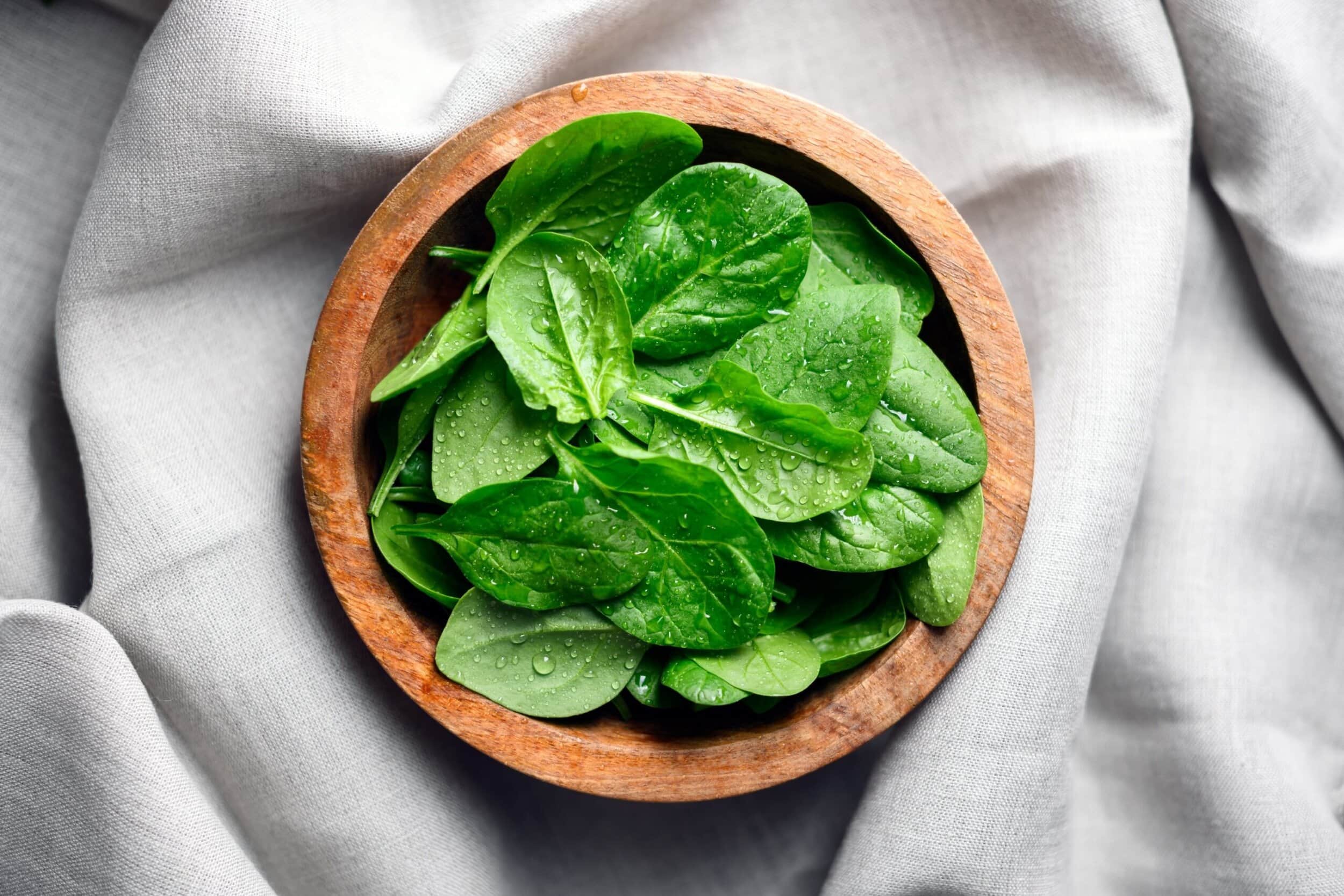




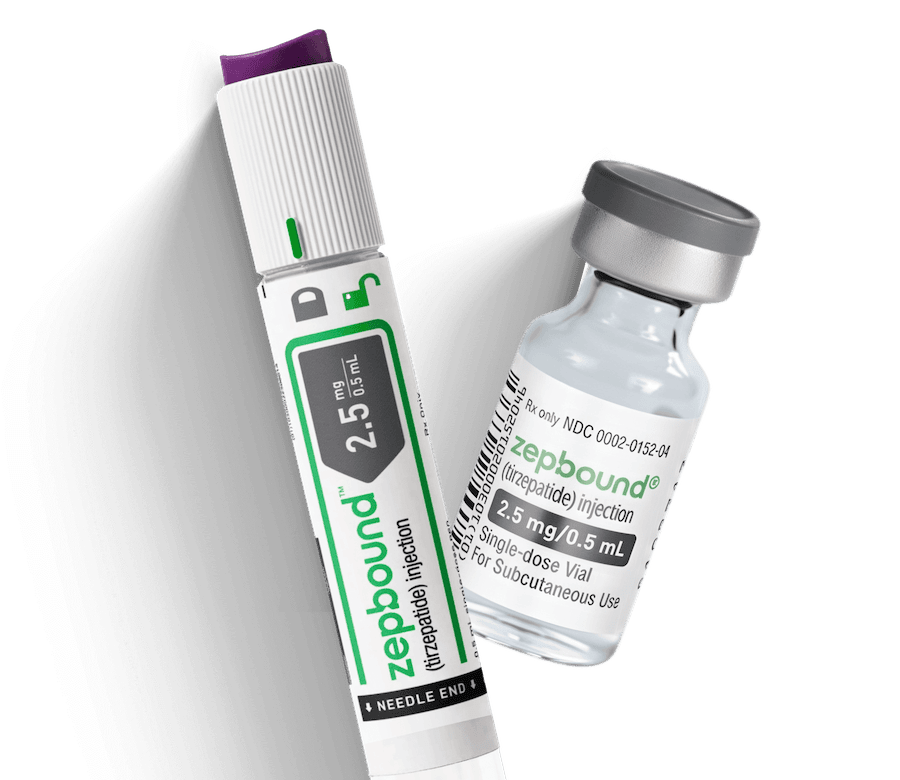



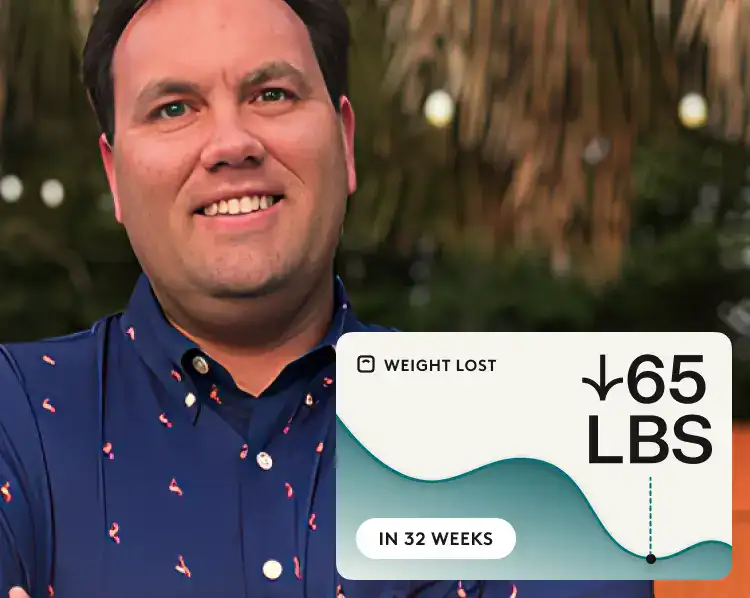

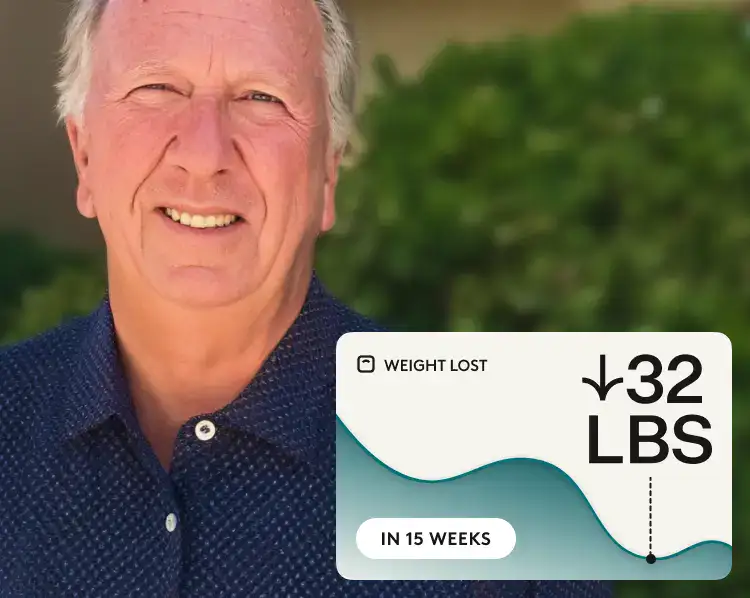
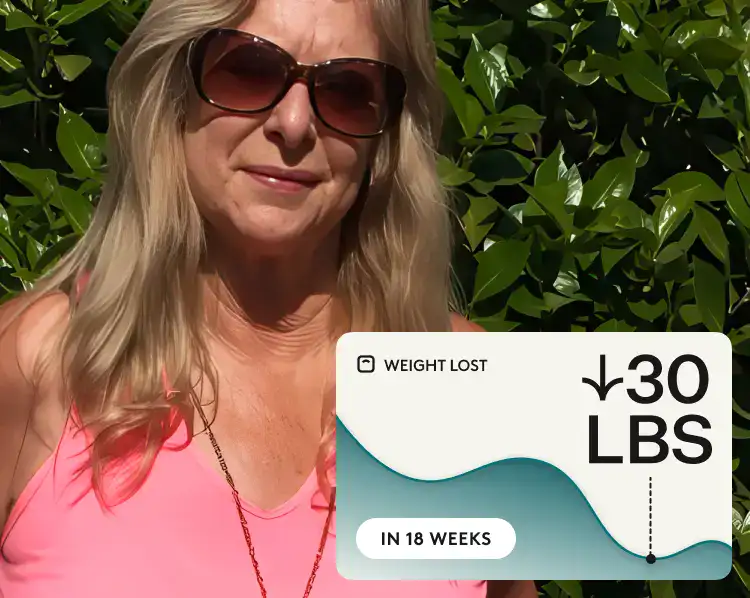
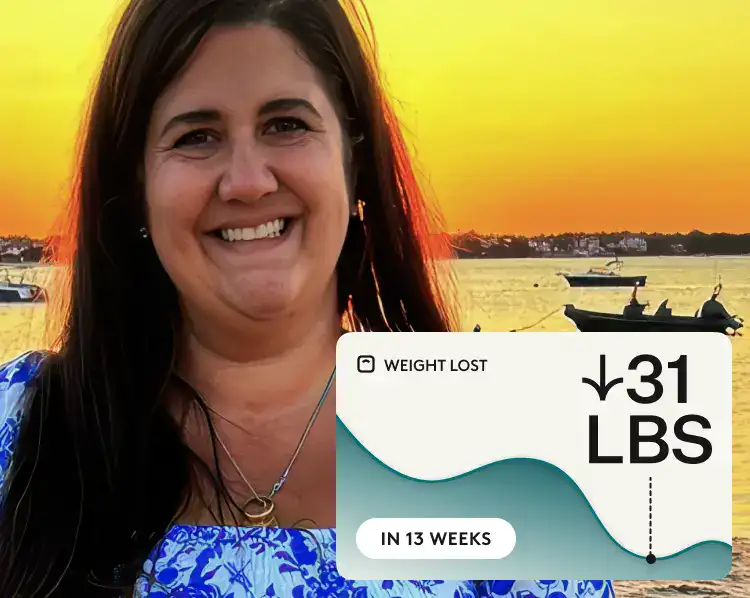





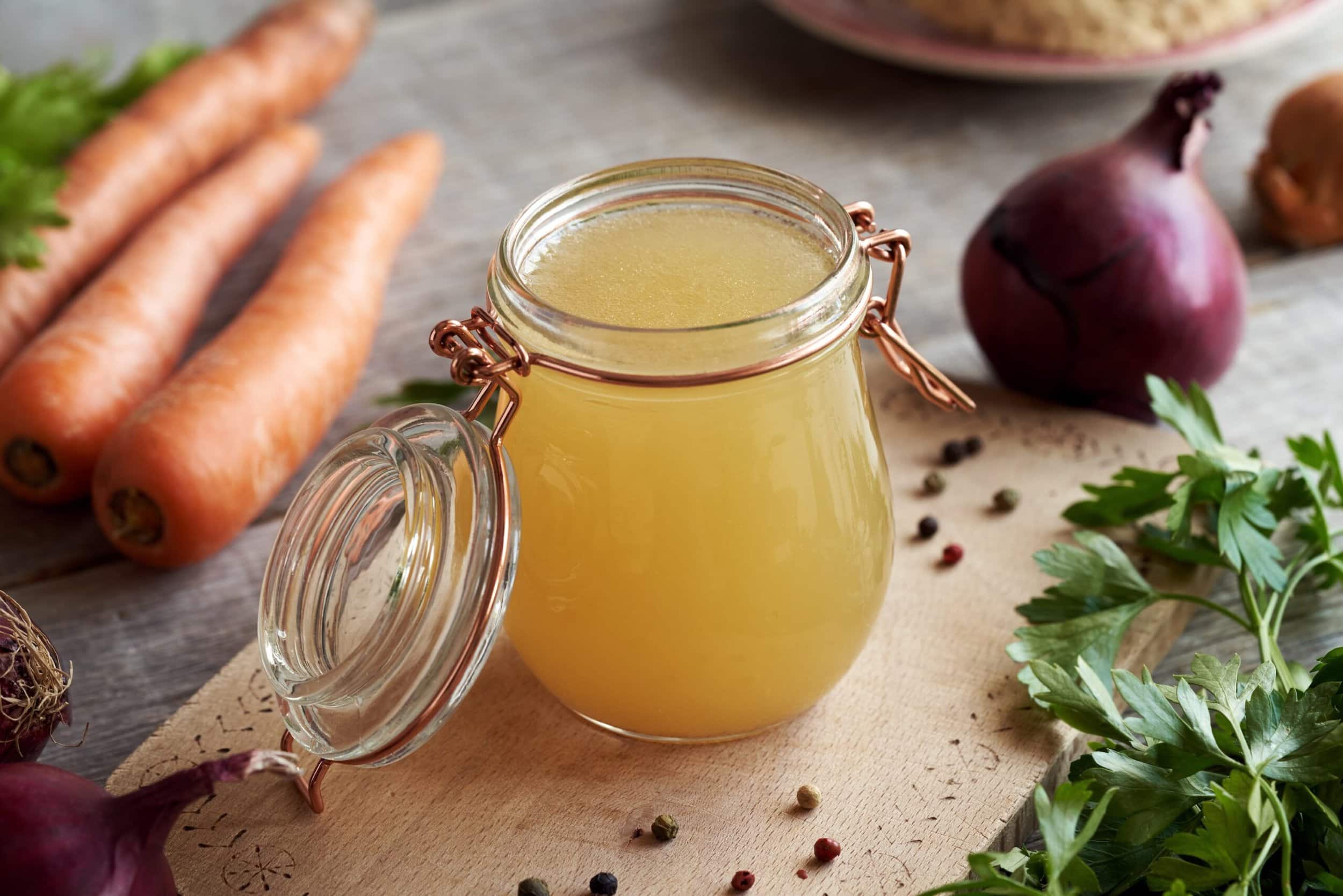
 Melissa Kay
Melissa Kay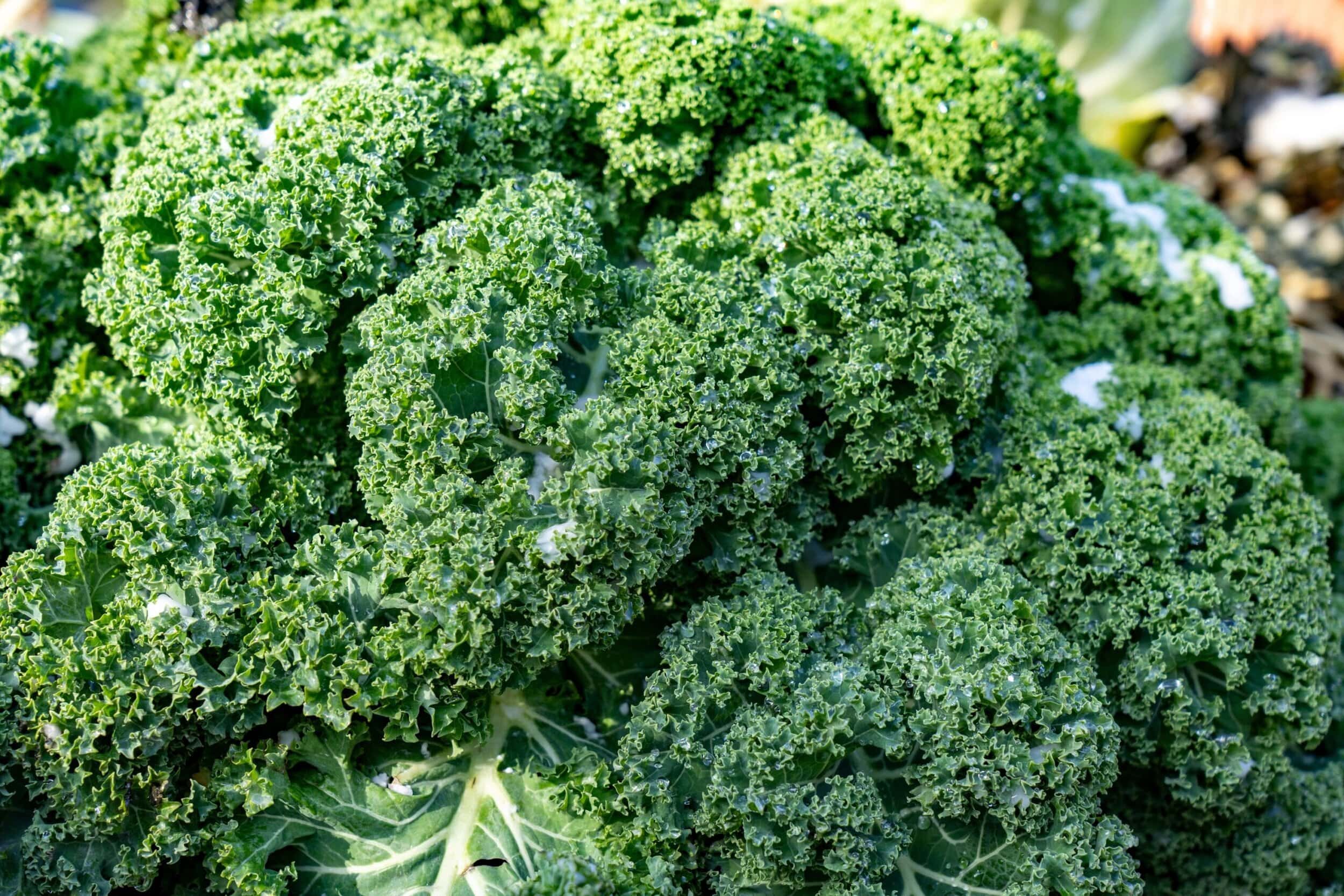
 Noom Team
Noom Team
 Shoshana Fishbein
Shoshana Fishbein